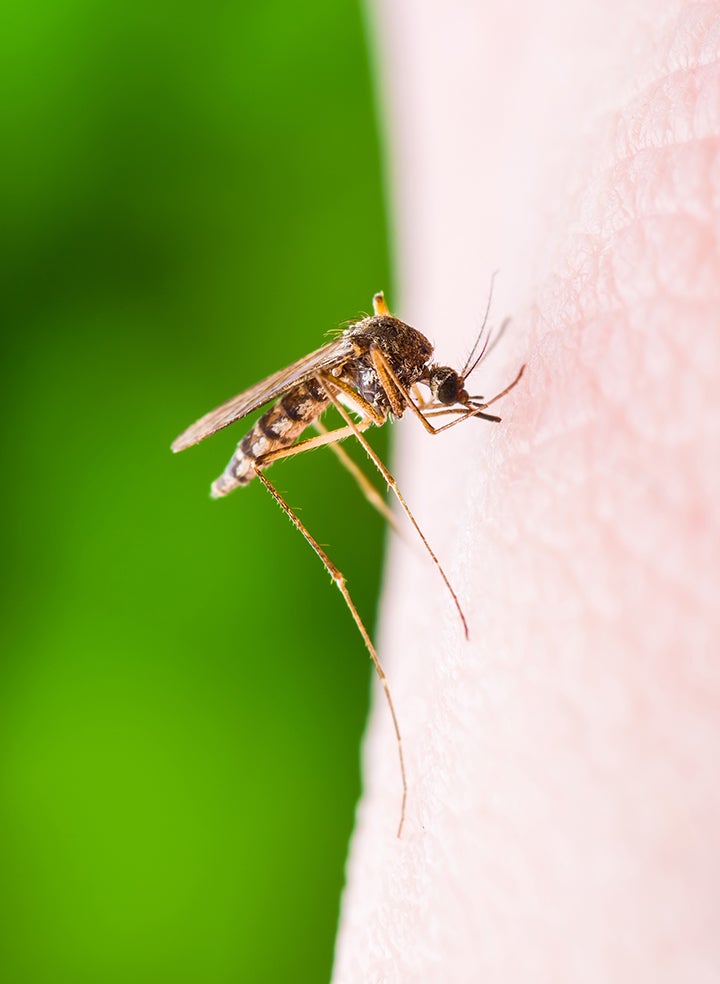World Mosquito Day
Mosquitos may be small, but they make a major impact on the world. Learn the history of World Mosquito Day with us.
August 20th was World Mosquito Day. It might seem odd to dedicate a day to the deadliest animal in the world, but it’s not celebrating mosquitoes, rather it’s commemorating the discovery that female mosquitoes transmit malaria between humans.
That fact may be common knowledge today, but it wasn’t 120 years ago, when Ronald Ross, a British doctor working in India, confirmed it. Five years earlier, in 1892, when Ross first became interested in the causes of malaria, he was skeptical that the malaria parasite even existed.
However, in 1894, a demonstration by the Scottish physician Patrick Manson changed Ross’s mind. In 1877 Manson had worked out the lifecycle of the filariasis, the parasitic disease that causes elephantiasis, by experimenting on his affected gardener with mosquitoes. He was also the first person to show the transmission of human diseases by mosquitoes. But to Ross, he proved the existence of the malaria parasite, and Ross dedicated himself to proving the connection between mosquitoes, malaria, and humans.
Upon returning to India in 1895, Ross’s goal was clear, and he made a great stride by observing the early stages of malaria in a mosquito’s stomach. It was an important finding, but not the conclusive evidence he was looking for.
Still, Ross was energized and pressed on. However, his research was stymied when the Indian Medical Service stationed him in a region that was malaria-free to look into an outbreak of cholera. Frustrated, Ross threatened to resign following the placement. Manson, now a friend and correspondent, made requests on Ross’s behalf, and eventually, in May 1896, the Indian Government offered Ross a year of special duty to continue his research.
Three days after his transfer, Ross himself was stricken with malaria. And despite the irony, Ross was finally in an environment more conducive to his research, and he quickly got to work. He cultured several “dappled-winged” mosquitoes (Ross’s name for the Anopheles mosquito) from birth and paid a malaria patient to infect them. Immediately after the blood-feed, Ross removed the infected mosquitoes to his laboratory. And so it was, four days after the feeding, on August 20th, 1897, Ronald Ross dissected the stomach of an anopheline mosquito and found the malaria parasite. The proof he had been searching now lay before him.
A poet as well as a physician, Ross composed a short piece to celebrate his finding – from that one, small observance many lives would be saved, or, as Ross put it, “I know this little thing./A myriad men will save./O Death, where is thy sting?/They victory, O Grave?”
For this discovery and subsequent research concerning the lifecycle of the malarial parasite, Ross would win the Nobel Prize in Physiology in 1902. He consulted or lectured on tropical diseases for the rest of his life, including during the First World War. In 1926 the Prince of Wales opened the Ross Institute and Hospital for Tropical Diseases where Ross served as Director in Chief until his death in 1932.
And while there’s no shortage of recognition for Ross’s discoveries and contributions to medicine, hopefully, you’ll agree that World Mosquito Day is a noble enough commemoration.
What Is Malaria?
Malaria is a disease caused by a parasite, commonly transmitted by mosquitoes. There are several different types of malaria, the deadliest being Plasmodium falciparum – however, within death and severe illness from malaria can often be prevented if the disease is spotted and treated.
Am I at Risk?
Around 90% of deaths due to malaria occur in Sub-Saharan Africa, however, malaria can be found in warmer climates that are conducive to the Anopheles mosquito’s growth. Within the United States, malaria was eliminated in the 1950s, however, there are still cases reported, mostly from travelers to at-risk countries. Pregnant women tend to be at greater risk for malaria due to the changes in their immune system during pregnancy. Generally, the less access one has to healthcare, the more they are at risk.
What If I’m Traveling to an At-Risk Country?
Healthcare providers can advise you on the appropriate antimalarial drug. Preventative measures are highly recommended, as the immune systems of individuals living in low-risk countries generally tend to lack the ability to fight malaria as individuals living in high-risk countries. Fortunately, the CDC maintains a list of all the countries where malaria transmission occurs.
Fast Facts:
According to the Greek historian Herodotus, the Egyptians used garlic as a remedy for malaria.
One of the oldest treatments for malaria that is still in use today is quinine from the bark of the cinchona tree.
The term “malaria” is derived from the Italian “malaria” or “bad air.”
Malaria parasites dating back 30 million years have been discovered in mosquitoes.
Malaria has appeared in medical literature dating back as far as 2700 BC and ranging from Ancient China to the Roman Empire.
In 1962, the World Health Organization sponsored a campaign to eradicate malaria, which included the issuing of postal stamps featuring mosquitoes. The stamps were sold to collectors to raise revenue.
Sources:
nobelprize.org
Cdc.gov

